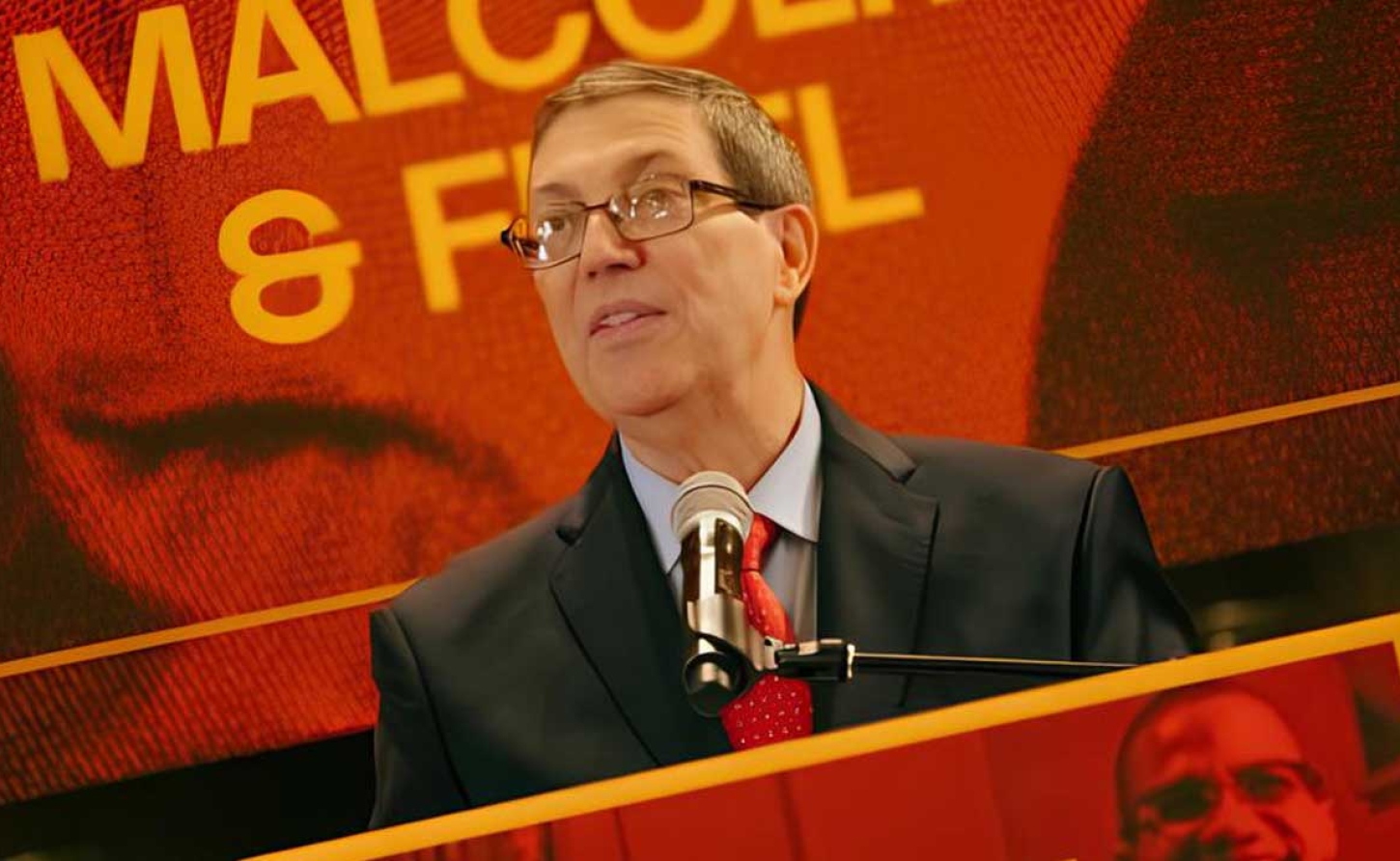CUBA | Cuba's Foreign Minister Honors Malcolm X at Harlem's Riverside Church

NEW YORK, NY, September 22, 2025 - The Gothic arches of Riverside Church in Harlem have witnessed many moments of revolutionary convergence, but September 2025 brought a particularly resonant one.
As Cuban Foreign Minister Bruno Rodríguez Parrilla stood at the podium where Fidel Castro once spoke in 2000 and Miguel Díaz-Canel in 2018, he wasn't merely delivering diplomatic pleasantries. He was renewing a covenant—one forged 65 years ago when Malcolm X extended his hand to the Cuban Revolution in a midnight meeting that would echo through decades.
"For Cuba, it is an honor and a duty," Rodríguez declared, his words carrying the weight of that historic solidarity, as he joined the commemoration of Malcolm X's centennial. The timing was no coincidence.
Cuba's delegation was in New York for the UN General Assembly, where they would denounce American aggression and champion the Global South. But first, they came to Harlem—always to Harlem first—because revolutionary memory demands it.
The Foreign Minister's speech wove together threads that Malcolm himself would have recognized: Palestine and Cuba, Haiti and Harlem, the struggle against racism and the fight against imperialism.
These weren't disparate causes but facets of the same liberation crystal that Malcolm held up to the light in his final years. "Malcolm preached to the poor, to the forgotten, to the marginalized, to those enslaved in their own country," Rodríguez proclaimed, his words cutting through the cathedral air with surgical precision. "He encouraged them to open their minds and to look at the world free from the shackles of oppression."
This wasn't mere historical romanticism. As Rodríguez spoke of Cuban doctors serving in Haiti since 1998 and Cuba's enduring presence across Africa and the Caribbean, he was articulating something Malcolm understood viscerally: that solidarity isn't charity descended from above, but a horizontal embrace between peoples who share what he called "a history of struggle but also a present and future of cooperation."
The Cuban medical brigades treating cholera in Haiti, training doctors in Ghana, fighting Ebola in West Africa—these were the living manifestations of what Malcolm envisioned when he spoke of Third World unity.
The speech gained particular poignancy when Rodríguez addressed contemporary crises. His promise to "condemn in the strongest terms the genocide being committed by Israel" against Palestinians connected directly to Malcolm's own evolution toward anti-imperial internationalism.
The denunciation of "unjustified and aggressive military buildup in the Caribbean Sea" wasn't abstract diplomacy—it was a direct challenge to the Monroe Doctrine mentality that treats the Caribbean as an American lake. Here was Cuba, still defiant after six decades of blockade, speaking Malcolm's truth to empire's power.
Rodríguez traced Malcolm's intellectual journey with the precision of someone who understood its revolutionary implications: "Influenced first by the teachings of Marcus Garvey and having embraced the faith of Islam, Malcolm became a formidable voice of the oppressed and the forgotten."
But more crucially, the Foreign Minister recognized Malcolm's deeper breakthrough: "He came to understand the social and economic essence at the root of inequality and its manifestation in racial divisions, political corruption and exploitation."
This wasn't hagiography but revolutionary analysis. Malcolm's transformation from racial nationalism to anti-capitalist internationalism mirrored Cuba's own understanding that racism and imperialism were twin tentacles of the same beast.
When Rodríguez spoke of "the attempts by the powerful to conduct international relations with the use of force and coercion," he was channeling Malcolm's final speeches about the global nature of oppression.
"Malcolm lost his life as a martyr of those circumstances, but he did not fall quietly. He left this world fighting and undefeated," Rodríguez declared, and in that moment, the distance between 1965 and 2025 collapsed.
The same forces that silenced Malcolm—the unholy trinity of racism, capitalism, and imperialism—continue their work, whether through economic blockades against Cuba, military bases imposed on sovereign Caribbean nations, or the climate catastrophe drowning small island states while the powerful dither.
Yet what emerged most powerfully from Rodríguez's tribute wasn't grief but defiance. "I can assure you that Cuba will be very active and that we will not be silent," he promised, channeling Malcolm's own refusal to moderate his voice in the face of power.
This wasn't diplomatic nicety but revolutionary commitment, spoken in the very city where Malcolm taught that liberation comes "by any means necessary."
The Foreign Minister's closing words to Malcolm's daughters and "all those in the US that struggle for justice" carried a message both tender and fierce: the revolution continues, the solidarity endures, and the covenant between Cuban revolutionaries and Black liberation fighters remains unbroken.
"He is a symbol," Rodríguez affirmed, "of the promising opportunities in developing relations between the people of Cuba and the people of the United States."
As the Cuban delegation left Riverside Church that September day, heading toward the UN to battle on the diplomatic front, they carried with them Malcolm's spirit—not as a relic but as a living force.
In honoring Malcolm X on his hundredth birthday, Cuba wasn't just remembering history. It was renewing a promise that another world remains possible, and that the struggle to achieve it connects Havana to Harlem, yesterday to tomorrow, in an unbreakable chain of revolutionary hope.
-30-
